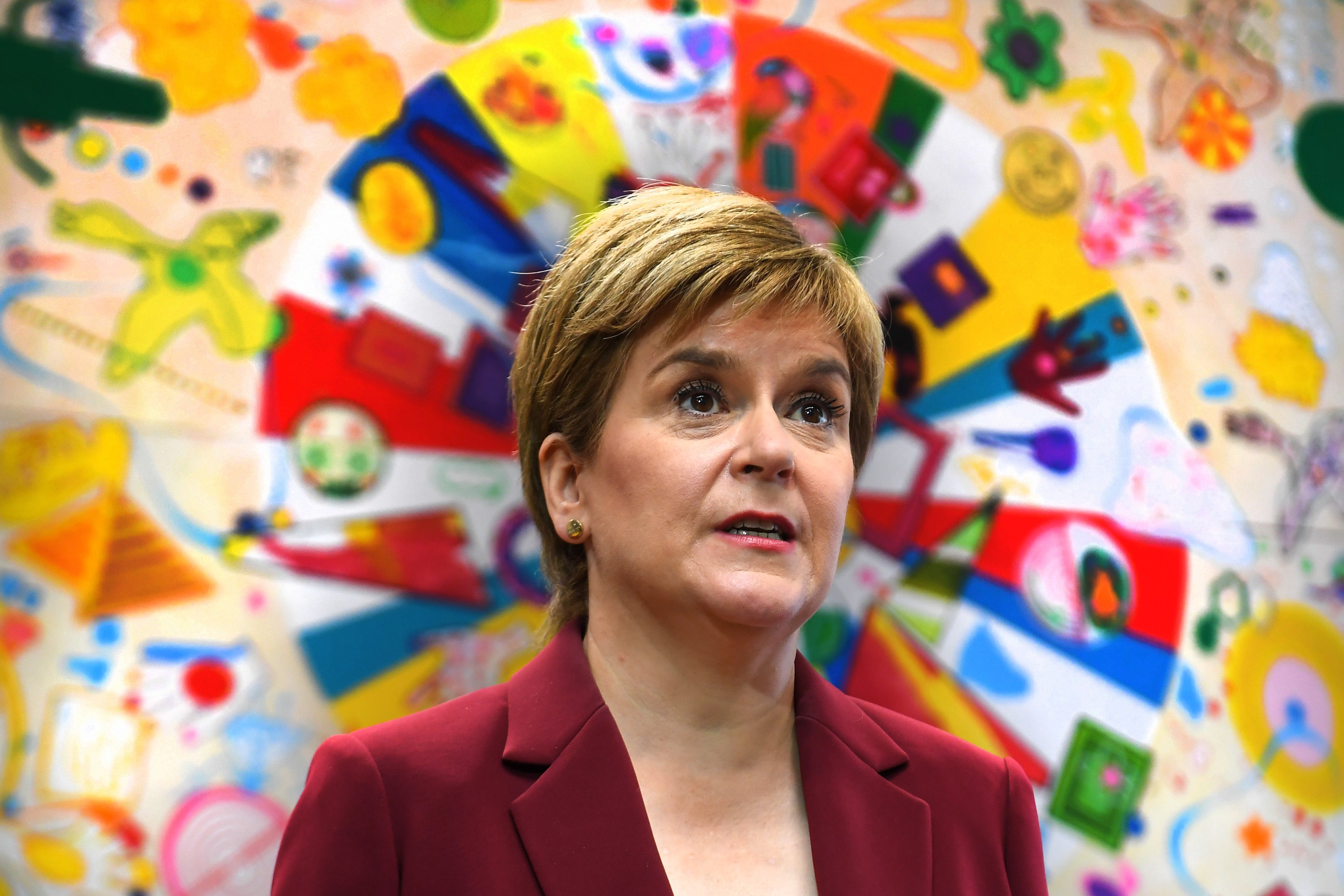Nicola Sturgeon now finds herself in Keir Starmer’s top pocket
The Labour leader fended off questions about a deal with the SNP, but may be in a stronger position than he realises, writes John Rentoul


The image of Ed Miliband in Alex Salmond’s pocket was one of the most striking political posters in recent years, produced by Saatchi & Saatchi for the Conservatives in the 2015 election. It exploited the sense of unease among floating voters about the alternative to a Conservative or a Conservative-led government.
As the opinion polls suggested a Labour majority was unlikely, it seemed that the choice was between a government led by David Cameron and an unstable and undesirable combination of Labour and the Scottish National Party.
The poster told us a great deal about the state of public opinion in that election. One is that it featured Salmond, who had stepped down as SNP leader and first minister of Scotland four months earlier. However, he was standing as an MP, about to return to the House of Commons, where he would be leader of the SNP group in Westminster and a key player in negotiating any deal with a minority Labour government.
The Conservatives also made a poster of Miliband in Nicola Sturgeon’s top jacket pocket, but the new first minister was less well known – and less disliked – by English voters, so it is the Salmond poster that is remembered.
Although the message of the poster was rejected by Miliband, who said there would be “no deals or coalitions” with the SNP, it contained an arithmetical truth, which was that Labour would need SNP cooperation to form a government in a hung parliament. We now learn, from Alastair Campbell’s diaries, that it contained a further truth, in that Campbell was sounded out by Salmond about the possibility of his being deputy prime minister in a Miliband-led government.
Which brings us to Keir Starmer’s visit to Scotland today, and his attempt to try to get the “top pocket” question out of the way two or three years before the next general election. “There’ll be no coalition going into those elections and no coalition coming out of it,” Starmer told the Daily Record.
He will no doubt harden that form of words, just as Miliband was forced to do six years ago, because ruling out a coalition is not the same as ruling out other kinds of deal, such as the confidence and supply agreement between Theresa May and the Democratic Unionist Party that sustained two years of her government.
The problem for Starmer, as it was for Miliband, and as it would have been for Jeremy Corbyn if anyone realised he stood a chance of depriving the Conservative-DUP combination of a majority, is that his words don’t match the facts of a hung parliament. He said to the Daily Record: “You can’t vote for another party and get a Labour government in Westminster.” But of course you can. In Scotland, an SNP MP is just as good as a Labour MP for the purposes of GTTO (getting the Tories out). So is a Plaid Cymru MP in Wales or a Green MP in Brighton or Bristol West (the Green Party’s top target seat before boundary changes). A Liberal Democrat MP is a dicier proposition for an anti-Tory voter, but it is obviously possible that a vote for the Lib Dems could help obtain a Labour-led government.
It is a common mistake to assume that, for as long as Labour has lost Scotland, Labour cannot win a UK election. It certainly makes a majority Labour government implausible, requiring a greater swing in votes than Tony Blair achieved in 1997. But to deprive the Tories plus the DUP of a majority requires roughly the kind of swing achieved by Cameron in 2010.
It would then be the SNP’s words that came back to bite them. Nicola Sturgeon and Ian Blackford, her satrap in Westminster, would find themselves with no influence in the making of a government. Because the SNP (and Plaid, and the Greens) have absolutely ruled out ever propping up a Conservative government in Westminster, they would have to allow a minority Labour government to take office. There need be no deals or coalitions, but if a Starmer government presented legislation roughly in line with SNP policy, it would be hard for the SNP to vote it down.
Above all, if Sturgeon demanded a new referendum on independence, Prime Minister Starmer could say, as he did to the Daily Record, “the focus right now is on the recovery and on the climate challenge”. And Sturgeon would have surprisingly little leverage to try to force the issue.
These are deep constitutional waters, and you can see how treacherous they are for Starmer. He can hardly go into an election saying: “The SNP has nowhere else to go; it will have to prop up a minority Labour government.”
But if Labour HQ wants to get a subliminal message across, perhaps it ought to produce some billboards now, of Starmer with Sturgeon in his pocket.






Join our commenting forum
Join thought-provoking conversations, follow other Independent readers and see their replies
Comments